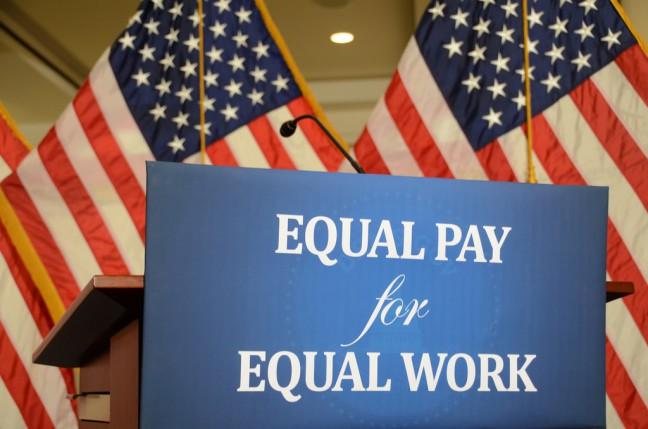Looking to increase public awareness of wage discrimination, Wisconsin legislators have introduced two bills that would penalize companies for unfair pay and increase employee agency around wages.
Four state legislators are sponsoring two bills to address equal pay conditions in Wisconsin.
The Equal Pay Enforcement Act would create a way to contest unequal pay in court and require employers to compensate employees and pay fines for wage discrimination, state Rep. Christine Sinicki, D-Milwaukee, and state Sen. Janice Ringhand, D-Evansville, said.
Equal pay for equal work: Wisconsin lags behind for pay equality
Modeled after a Massachusetts law, the Equal Pay Transparency Act would regulate what information employers and employees can share about wages. Controlling information this way would be a way to try to protect employees, Sinicki said.
This bill prevents employers from asking about the previous salary of an employee and from asking former or current employers about an employee’s salary, Sinicki said. It would also prohibit an employer from banning its employees from talking about their pay.
Ringhand said this law would open wages up to scrutiny, increasing visibility for wage discrimination and protecting people from getting different starting salaries for equal work.
When workers’ salary amounts are dependent on their previous pay, a wage gap follows people throughout their careers and does not let them advance, Sinicki said.
While the pay gap is usually associated with gender, Ringhand and Sinicki both said this legislation would benefit anyone who experiences wage discrimination, people of color, veterans, people with disabilities, single parents and people coming from minimum wage jobs.
The reason for this legislation and its importance, Sinicki said, is ultimately that people deserve to be paid fairly and well.
When the Equal Pay Enforcement Act was initially introduced in 2001 and 2002, women were making 78 cents to the male dollar.
“That number has not changed through all these years,” Sinicki said.
Ringhand said equal pay enforcement would make a significant difference in narrowing the pay gap and help women gain up to $10,000 in annual income. Increased wages would put more money back into the state economy, stimulating business and benefiting everyone, Sinicki said.
The Equal Pay Enforcement Act was first introduced in the 2001-02 Legislative session. It became law in 2009, Sinicki said.
Former Wisconsin Gov. Jim Doyle signed the law, adding a new layer to wage gap legislation, Sinicki said. Republican legislators, however, repealed it in 2011.
Wisconsin Civil Justice Council released a statement in 2012 criticizing the Equal Pay Enforcement Act for being unnecessarily expensive for companies. Wisconsin Manufacturers and Commerce, Wisconsin Builders Association and Wisconsin Hospital Association also contributed to this statement and said the act did nothing to encourage people to file cases for pay discrimination.
The act was overall, “unduly burdensome on Wisconsin employers,” the statement’s authors said.
While there have been many equal pay laws, Sinicki said, there is no enforcement element to any of them.
“Women have been on the short end of the equal pay stick,” Ringhand said. “[It’s] important to send a message to employers that you can’t discriminate against women in the workplace”
UW professor discusses intersectionality of anti-racist, anti-feminist sentiments
Ringhand said repealing the Equal Pay Enforcement Act in 2011 was a mistake. Sinicki said she felt like they had to start all over again.
Legislators have assembled the bills and are currently asking for co-sponsors, Ringhand said.
“It’s something that I’m going to keep introducing each and every session until we truly have equal pay,” Sinicki said.


















